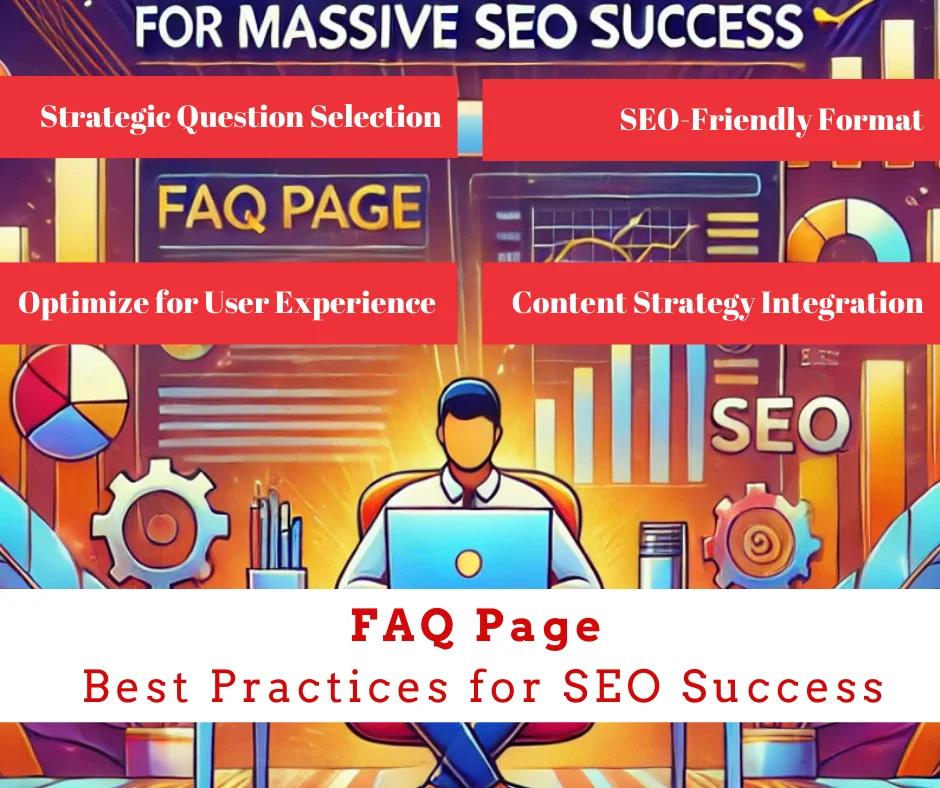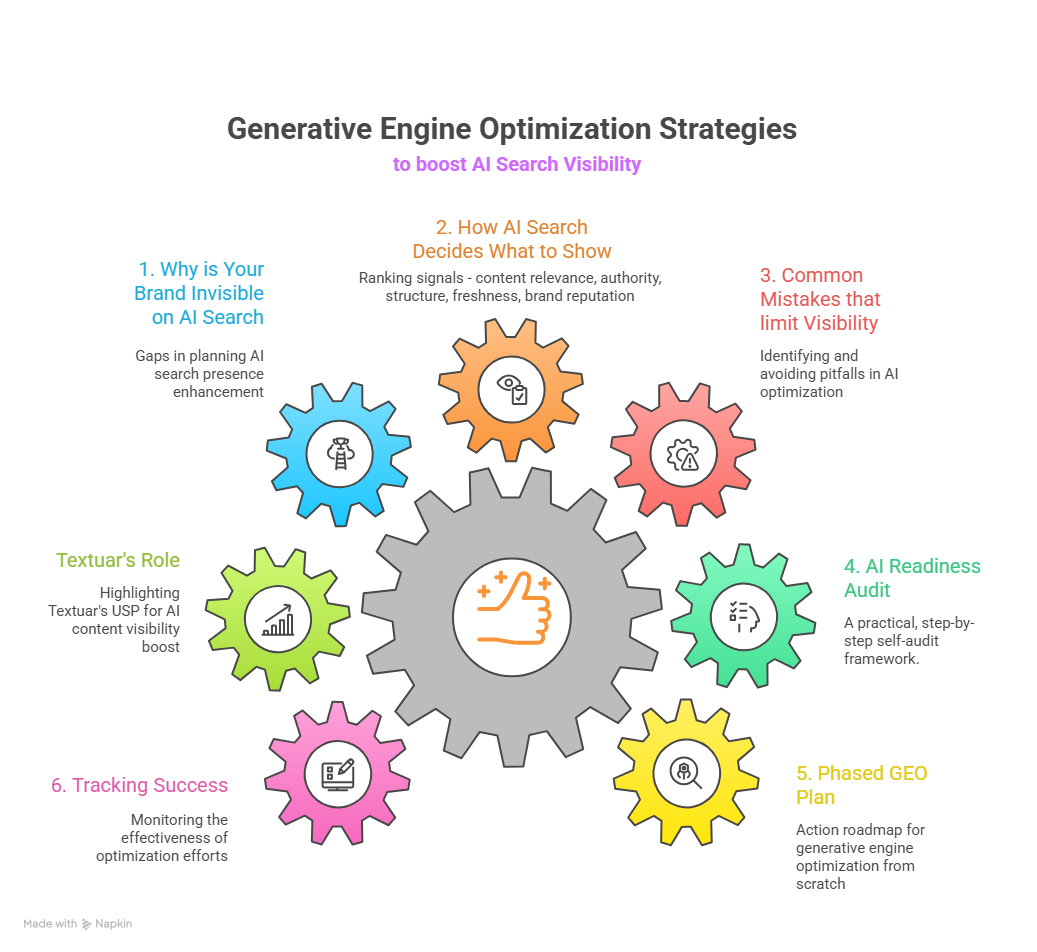If your business has a website, make sure that it has an FAQ page. It is not a necessary evil, but it is SEO gold. You can use the page in a conventional manner. Here, the page will be a list of questions that your prospective customers may have before they buy your product or service. The page will, in turn, provide answers to such questions for the benefit of the searchers.
But what if we can convert the page to an SEO advantage?
Yes, you can tweak the page to serve two purposes:
- It enhances your search engine visibility
- It also provides valuable customer service.
Here’s your pocket guide to transforming your FAQ page into an SEO powerhouse.
What is an FAQ page?
The page is a knowledge hub for your site visitors. Here, they can find instant answers to common questions going on their mind when browsing your site. It is a virtual 24/7 customer support representative for your business.
Many businesses use the FAQ page to address customers’ or prospects’ queries before they arise.
Let us consider an example.
A content writing company’s FAQ page may list questions like-
- What is the process of content writing
- What happens if I don’t like the content, or
- What is the payment term for ordering content
Do you see what is happening here?
The reader has spent a few minutes and is happy to order content from the site. But she might still have some nagging doubts before making the purchase. Here, she will visit the FAQ page and get answers to such nagging doubts.
The page will reinforce the fact that she is making the right decision by ordering the content from the company. It will help address any queries she might have before making the purchase.
The SEO Power of FAQs
[1] Drive Organic Traffic Through Search Intent
Search engines, particularly Google, are created to return specific answers to queries. As a result, FAQs naturally fall into the line of that search intent and are excellent at capturing organic traffic.
Well-optimized FAQ pages stand a good chance to rank well. They will feature for any question search queries in featured snippets and PAA sections when people search for a question.
The question-and-answer format mirrors natural search behavior. It helps your content rank for long-tail keywords that are often less competitive but highly targeted. This structure also makes your content more likely to appear in voice search results, as voice queries typically take the form of questions.
[2] Increase Conversion Rates While Reducing Support Costs
A well-rounded FAQ section is one that addresses common customer questions before they become barriers to conversion. In this way, you are taking away friction from the buying process and building trust with potential customers.
This is a great way to increase conversion rates while also alleviating pressure on your customer support team. This benefit makes it a win-win for both SEO and operations.
[3] Structured Data in FAQ Page Gives Positive Signals
When you implement FAQ schema markup on your site, you see search ranking gains on Google. It helps the search engine understand the question-and-answer format. This will lead to rich snippets in search results which can include click-through rates.
What are the signs of a well-crafted FAQ page?
[1] Strategic question selection
A good FAQ page will anticipate the likely questions on the mind of the site visitor. It won’t be a good idea to go with generic queries. Instead, the company needs to spend time on customer interactions and see what matters more to the prospect.
For instance, let us consider a site for coffee purchase. The FAQ page should not have run-of-the-mill questions like ‘Do you offer shipping?’ Instead, it can be more specific and valuable like, ‘Where are your coffee beans sourced from?’
[2] Scannable Structure
It is better to group the questions into broad categories. For e.g. you can group into ‘Shipping’, ‘Returns’, and ‘Product Care.’ This makes the information instantly accessible.
Such page optimization will prioritize user experience with proper grouping and logical structure. Such bite-sized snackable content will ensure better navigation and is formatted for easy scanning.
[3] Detailed Yet Concise Answers
You need to be careful that you do not overwhelm the reader when providing an answer to a query. But at the same time, it should not exasperate them with shallow answers that doesn’t provide an answer to the given question.
Let us consider an alternative to a lengthy paragraph for ‘Shipping’ info. It can read something like, ‘We ship to all US states. Standard delivery of 3 to 5 days. Free shipping on orders above $50.’
To sum up, the below are some key signs of a well-written FAQ page
| What are the signs of a well-crafted FAQ page? | |
| [1] Strategic question selection | FAQ page will anticipate the likely questions on the mind of the site visitor |
| [2] Scannable Structure | Grouping makes the information instantly accessible |
| [3] Detailed Yet Concise Answers | Balance between too shallow and too much depth in answer |
How to Create SEO-Friendly FAQs: In-Depth Best Practices
[1] Strategic Question Selection
Mining Customer Support Channels
Start by analyzing your current channels of customer communication:
– Check email inquiries and support tickets
– Look at transcripts from live chat
– Check questions on social media
– Monitor phone call logs
– Check customer feedback forms
This information gives you an insight into what your actual customers want to know; it will help you produce relevant, valuable content.
Competitor Analysis
Study the FAQs of your competitors so that you can:
– Identify gaps in their coverage that you have not covered
– Fill the gaps in their coverage
– Understand how they present their answers
– Identify opportunities to give your readers better, more detailed answers
Research on Search Intent
Use search engines to learn what people in your target audience are looking for:
– Use Google’s Autosuggest to see similar questions
– Check out the “People Also Ask” boxes that appear on a search results page
– Study Quora and Reddit topics in your niche
– Study the question-based queries from Google Search Console
[2] Format Friendly to SEO
Tactical HTML Markup
– Use H1 for your main FAQ page title
– Divide your questions up as H2 or H3 header tags
– Add schema markup for FAQs
– Organize content clearly in a hierarchical manner
Optimize Content in Natural Tone and as per User Intent
– Use conversational language similar to how people really ask questions
– Use variations of phrases that people use commonly in order to catch other patterns of search
– Integrate SEO keywords without losing readability
– Keep answers concise and to the point, relevant to the question asked
Optimize Content for Length and Structure
– Keep individual answers concise usually 100 words or less
– Use bullet points for complex answers when appropriate
– Include relevant examples or scenarios
– Maintain consistency in answer structure across all questions

[3] User Experience Optimization
Navigation to make FAQ page easy to find and use
– Place it prominently in your site navigation
– Create logical categories for questions if you have many
– Implement a search function for larger FAQ sections
– Consider a sticky navigation for long FAQ pages
Clarity on Answers
– Begin with a straightforward answer (yes/no when possible)
– Support the answer with information or context that is required
– Give examples or use cases with specificity
– Link to relevant supporting resources when applicable
Brand Voice and Technical Balance
– Use your brand voice reliably
– Only use jargon if it’s appropriate to your audience
– Explain technical terms if they must be used
– Tone must be informative and helpful
[4] Content Strategy Integration
Keyword integration in FAQ page
– Insert target keywords in questions and answers
– Utilize relevant terms and synonyms
– Prioritize long-tail keyword opportunities
– Ensure natural language flow
Use FAQ to Build Strong Internal Linking
– Link to relevant product or service pages
– Connect to related blog posts or resources
– Establish natural paths for users to explore your site
– Do not over-link that would drive users away
Keep your FAQ section fresh and relevant
– Review and update answers regularly
– Add new questions as they arise
– Monitor analytics of the FAQ page
– Track search rankings for FAQ content
Performance Tracking
– Monitor FAQ page engagement metrics
– Track conversion rates from FAQ visitors
– Analyze search rankings for FAQ content
– Measure impact on support ticket volume
Implementation Tips
To maximize the SEO impact of your FAQ section, you can:
– Consider creating topic clusters around major FAQ themes
– Implement JSON-LD schema markup for FAQ content
– Create dedicated landing pages for complex topics
– Use internal search data to identify new FAQ opportunities
Remember that your FAQ section is a living document that evolves with your business and customer needs. The periodic updates and optimizations will ensure it remains an effective SEO tool and resource for your customers.
To Conclude
This wraps up an intriguing post on the business value of FAQ page in content and SEO success. Make sure to leverage this page smartly. Doing so will enhance your brand positioning on the search results page. The higher ranking will lead to healthy conversion numbers for your business.
Textuar’s team is happy to create a compelling FAQ page that addresses the possible questions of your specific target audience. Reach out to us and see how we can make this page an SEO powerhouse.
FAQs
Q – Can an FAQ page improve my SEO performance?
Yes, this type of page works well for SEO when structured with proper schema markup. It can improve search visibility by featuring on featured snippets and targeting search queries. Adding this page on your site will boost click-through rates while addressing common questions of your prospective customers.
Q – How often should I update my FAQ page?
Customer questions may evolve with shift in industry dynamics. You need to make it a point to get these integrated into the FAQ page. For this, you can check page engagement metrics and track new enquiries. These will give some indication if new questions need to be added to the page.
Q – How long should the answers to FAQs be?
Aim for answers that are no more than 100 words. It will give the reader enough information without overwhelming them. The trick is to strike a balance between being sufficiently detailed to be useful and brief enough to keep readers interested. You may use bullet points for complex topics.
Q – How do I determine which questions to include in my FAQ page?
You can assess customer support channels and read competitor FAQs. Others recommend the use of tools such as Google’s Autosuggest and “People Also Ask” boxes. These will come in handy to research the intent of search. You should opt for specific, valuable questions over generic ones.









